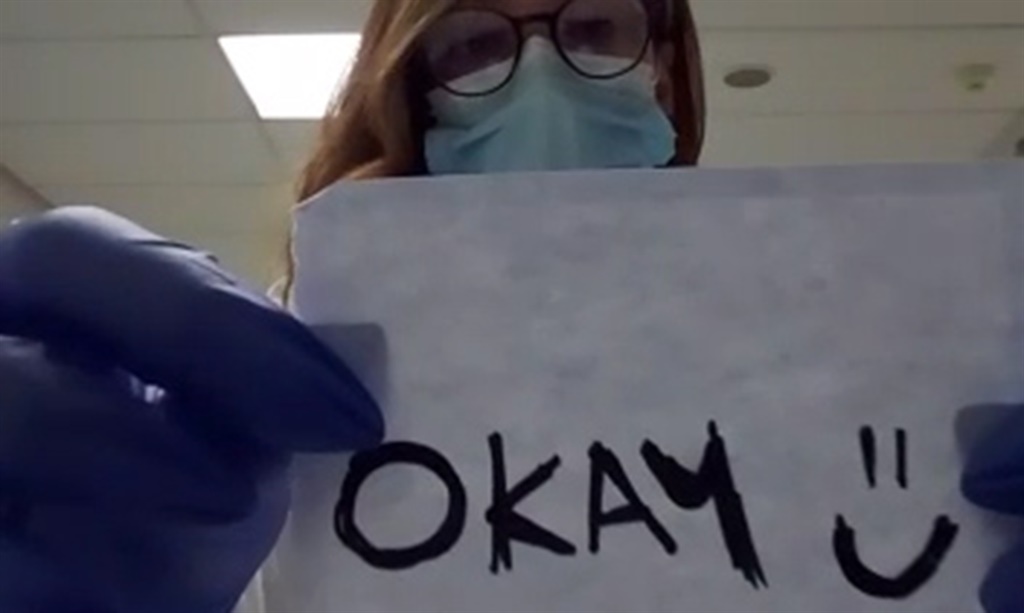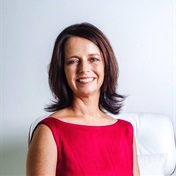
If we extend the metaphorical hand of care and love now, we might even find that some healing happens in our country at this time of disease and death, writes Melanie Verwoerd.
Have you noticed how fault lines show up during times of stress?
Christmas is a great example. Within a couple of days, adults regress to teenagers with their parents, old sibling rivalries surface and before you can say: "Father Christmas" family battles take on the proportion of mini civil wars.
Societies function like big families.
When under strain, fault lines that are hidden and "negotiated" during the normal demands of daily life, become uncomfortably visible and demand attention.
As we entered week four of lockdown I started to get (what felt like) a tsunami of texts from fairly well-off people.
The number one complaint related to the ban on alcohol and cigarette sales (I pretended to be sympathetic).
They also complained about not being able to exercise (I suggested a few possibilities indoors).
They complained about not being able to walk their dogs (I was genuinely sympathetic).
Then things got nasty.
"WHY CAN’T I BUY HOT FOOD AT WOOLLIES??" shouted a number of texts.
"What are these idiots thinking?"
"If they keep on treating us in the suburbs like children - we will take our assets off-shore!"
It went on and on.
Then in the midst of it all, there was a text from a grandmother in a township outside of Cape Town: "I’m so sorry to bother you, but I’m desperate. We have no money left and the food is finished. I have nothing for the children."
I stared at my phone screen, her desperation and anxiety radiating through my body.
For a moment I imagined her situation, crying children… hungry herself. I imagined myself in her position, my children weeping from hunger.
While I transferred some money to her, I wept, knowing that many parents and grandparents must be going through the same thing.
Over the next few days more and more desperate pleas for help followed. Hungry, hungry, hungry they pleaded, whilst the angry Woollies-hot-food-debates continued.
Every evening as I looked at my phone, I tried to make sense of these two worlds visiting my WhatsApp.
It was as if the deepest fault lines in our society (and the world) were laid bare: Woollies hot food vs. no food; wine vs baby milk; cigarettes vs. bread.
Over the weekend I went for the first time to my local shopping centre.
At the centre, people (most were wearing masks) stood in long lines, two metres apart, waiting to enter the various shops.
I tried to engage, but no one talked and casual conversations were not welcomed.
I then studied people’s eyes above the masks: fear, anger and frustration were visible.
Unmasked people were glared at. Anyone getting too close was told to back off. It started to scare me and after a few minutes I could not take it any more and left.
Of course we are all afraid at the moment. We feel anxious, our lives feel constricted and small.
We feel powerless as this invisible virus wreaks havoc in our world. We have no idea when this will end nor what the world will look like when it is all finally over.
However, if we are not careful something far more dangerous than the virus will happen to us. As much as we have to keep our physical distance from one another we cannot allow this virus to disconnect us.
We have to soften our gaze above our masks.
We have to keep on thinking beyond our own home, garden, street, neighbourhood and even country. More than ever before, at this time of physical distancing, we need to draw closer to each other, to connect.
In South Africa it is as basic as this: people are hungry. We must help.
Despite all the additional measures announced last night, the government does not have the capacity to do what is required at the speed that the growing crisis demands.
Even if they end the lockdown the hunger will continue to increase, as many people lose their jobs due to the global economic climate.
I know that many people will say: "But I don’t know what will happen to me, but now I have to give to others?"
One thing that has always astonished me through all the years of working with the poorest people on this earth, is how those who have the least will always still share.
It is the rich, the middle classes, that don’t.
Let's be honest: most of the middle classes have not become poor overnight. It just feels like it, because when you are used to privilege, equality feels like poverty (and we are still far from equal).
I’m sure that each one of us can do something. Keep on paying your domestic worker and your gardener.
Donate some money to one of the many soup kitchens that are forming.
Commit to buying food for one family for a month.
Buy something to be delivered by UberEats drivers and give them a big tip. Start clearing out cupboards so you can donate clothes and other possessions to charities once the lockdown has finished.
A CSIR survey showed that 45% of people felt boredom, 43% fear and 57% stress due to the lockdown. Doing something for someone else will undoubtedly help with all of that.
If we extend the metaphorical hand of care and love now, we might even find that some healing happens in our country at this time of disease and death.
If not, we could face the devastation of social unrest, looting, increased burglaries and increased racial tension. So, even if caring isn’t your thing, caring right now could save the country.
All it takes is a bit of empathy and mercy. And who knows we might even have a better world on the other side of Covid-19.
Because one thing I know for sure: empathy and mercy are the biggest threats to an unjust world.
- Melanie Verwoerd is a former ANC MP and South African Ambassador to Ireland




 Publications
Publications
 Partners
Partners
























